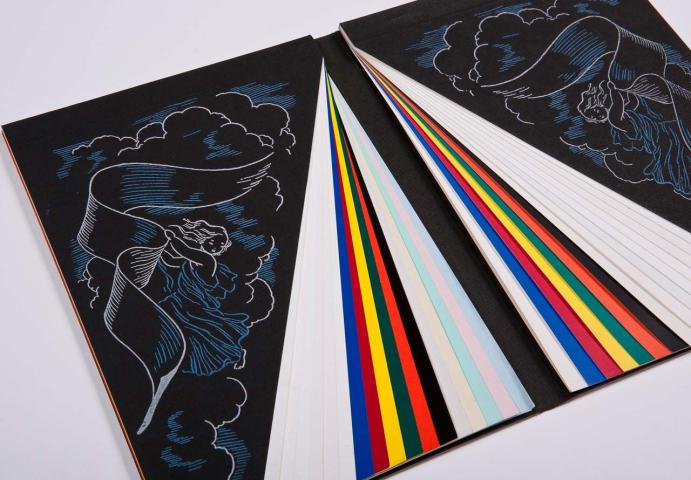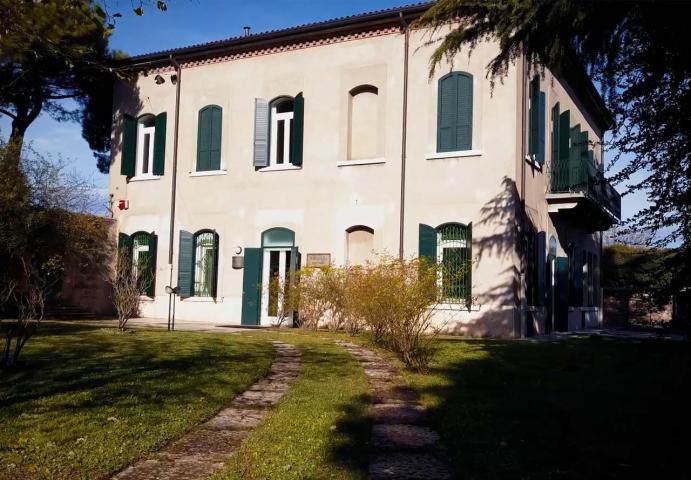Archive
The Fedrigoni Fabriano Foundation, on behalf of Fedrigoni S.p.A., takes care of the Fedrigoni Paper Mills archive complex. The historic archive of the three Fedrigoni paper-mills (Verona, Arco and Varone) and the Fedrigoni S.p.A. archive, in continual expansion, are hosted in the building where the former director of Cartiere Fedrigoni once lived. Known as Casa Fedrigoni, the headquarters hold documentation dating back to 1888, the year when Giuseppe Antonio founded the Verona paper-mill. Visitors are taken on an ideal journey through time accompanied by an evocative fil rouge blending tradition and innovation, technique and art, plunging them in an urban context characterized by the rapid, pioneering industrialisation of the late nineteenth century and at the same time an international scenario. The archival documents, rearranged and annotated, trace the construction of the factories and their constant modernisation, the purchase and use of machinery, production cycles of various types of paper, as well as the commercial network and product communication.
In 2025, the Fedrigoni Business Archive received official recognition for its historical importance from the Archival and Bibliographic Superintendency of Veneto and Trentino Alto Adige. This honor highlights the extensive collection of documents and artifacts that showcase over a century of the paper industry's history.
 Historical samples
Historical samples
In addition to documents relating to the three main Fedrigoni paper-mills (Verona, Arco and Varone) the personal archives of Gianfranco, Giuseppe and Alessandro Fedrigoni are also preserved there; as well as material concerning the industrial Camuzzoni canal consortium, of which the Fedrigoni family were among the main promoters and the group still has a minority holding; added to significant archival elements of other principle players of Verona’s industrialisation in the period following the demilitarizing of the city after 1866. In addition to administrative documents, accounting books, and files relating to personnel, there are sample books, patents, and paperwork relating to trademark registration, cartography, building projects and the allocation of plant equipment and machinery. A specialised library on local history, paper technology and the history of publishing and printing is also available.
The archive heritage has been increased by some 119 tools, in addition to machinery and watches, some of which are highly valuable for their workmanship, antiquity and excellent state of conservation; 186 files containing photo albums and slides going back to 1906 concerning events, buildings, equipment, products and factory personnel; dies for dry and wet watermark production, punches and cloths for printing rollers; and 88 moulds for manufacturing handmade paper dating back to the eighteenth and nineteenth centuries. The collection includes products made by graphic designers and printers for brands, businesses and publishers from all over the world (books and catalogues, packaging, wrappings and labels etc.) and presented at the Fedrigoni Top Award, the biennial international contest that awards the most original and innovative creations and projects that have used the wide assortment of Fedrigoni paper types.
The size and importance of the Foundation’s archive, book and paper heritage – a fundamental resource for the history of Italian and international paper - make it unique in Italy; not least for the aims that its founder Fedrigoni S.p.A. offers through a significant contribution to culture, scientific and technical research, and the protection and enrichment of a heritage that is a source of intellectual, social and economic wealth and development.
___________________________
Open for consultation ONLY BY APPOINTMENT.
For information: casafedrigoni@fondazionefedrigoni.it
 Headquarters of Fedrigoni historical Archive - Fedrigoni home
Headquarters of Fedrigoni historical Archive - Fedrigoni home